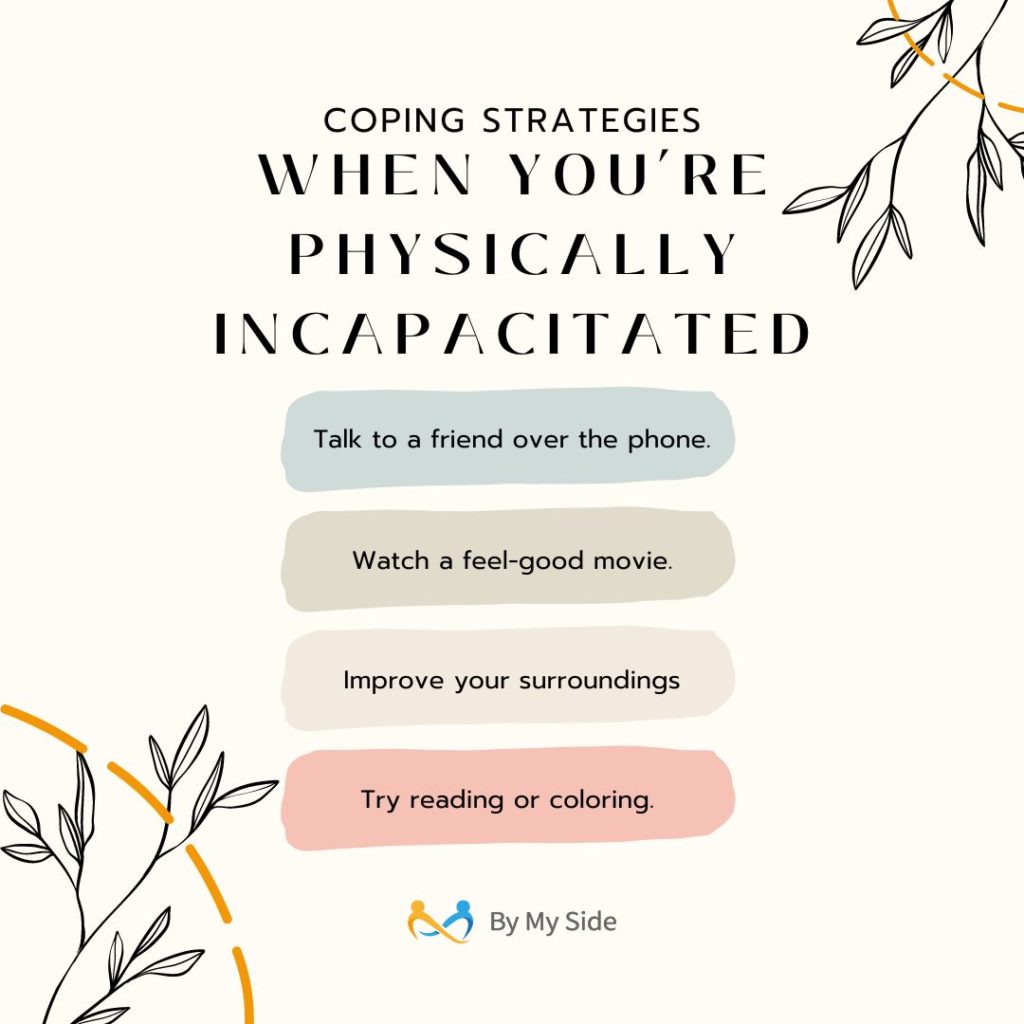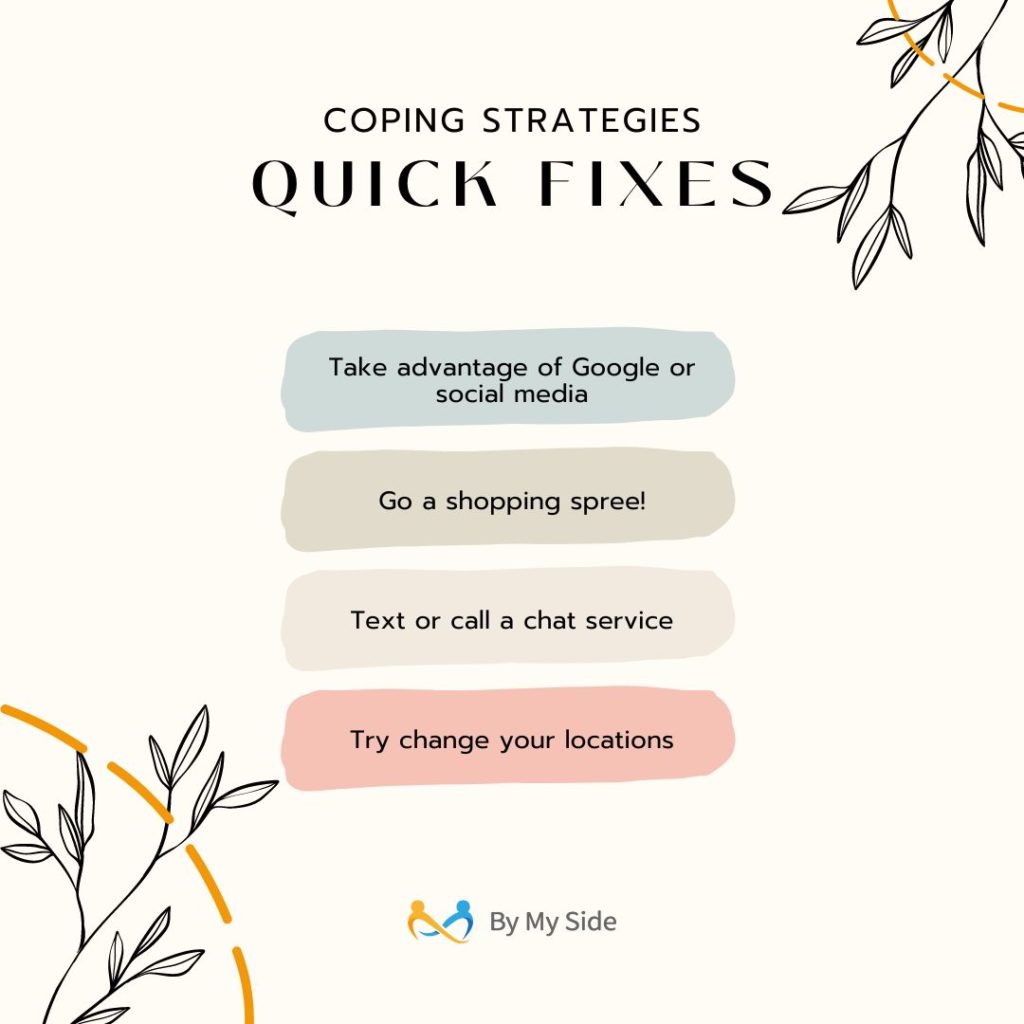Whether you’re having a bad day or experiencing chronic depression, what you’re feeling doesn’t have to take over your life. Even though negative emotions can be pervasive, there are innumerable ways to mitigate them or at least put them on pause. However, we also recognize that oftentimes, the “ideal” or most popular coping skills are also the hardest, especially when we’re not feeling well. So in the spirit of finding solutions that are possible for everyone, we’ve divided our coping methods into categories. Let’s get started!
1. When you’re physically incapacitated
Whether you’re too miserable to get out of bed, you’re physically disabled, or you don’t have the space or energy, doing something like a yoga routine can sometimes feel impossible. Luckily for you, you don’t have to.

- Talk to a friend over the phone. This can mean texting, FaceTime, or a regular old-fashioned phone call. You won’t have to move around, and your friend will be glad to hear from you.
- Watch a feel-good movie. Watch anything that might make you feel good. This might be a rom-com, a coming-of-age film, or even a kid’s movie. Penguins of Madagascar, anyone?
- Improve your surroundings. If you’ve been in the same space for a while, it might help to pick up some trash, light a candle, or open a window. A change of scenery or activity can help.
- Try reading or coloring. And if you don’t have a book or coloring supplies, both of these things can be done online! Audiobooks have become increasingly popular and there’s hundreds of coloring apps out there.
2. When you feel incapable of expending mental effort
Sometimes our mental disorders cloud our minds, making our thoughts foggy and difficult to decipher. Other times we simply can’t focus long enough to do something like journaling or a grounding exercise, and that’s okay. Try these things instead.

- Listen to classical or lo-fi music. As Debasish Mridha said, “Music can heal the wounds that medicine cannot touch.”
- Get some Sleep. Sometimes when we’re in a weird state mentally, that’s just our body’s way of telling us that we need to rest, whether that’s through napping or sleeping longer at night.
- Organize a space. While we can’t exactly clean our mental clutter, but it is possible to clean a physical mess near us, and sometimes that can feel like the same thing.
- Forget writing; just scribble. Try the physical version of ranting and either word-vomit onto a page or draw what you’re feeling; don’t worry about if it makes sense. Just let it all out.
3. Quick fixes
One thing that isn’t talked about enough in mental health discussions is how to fix a problem in the short-term. It’s important to focus on long-term solutions, but on those days where you’re one cruel word away from a breakdown, it’s unlikely that you’ll have the patience to employ a skill that takes too long. That said, here are some really brief options.

- Take advantage of Google or social media. Social Media is now trending and you can find anything from memes to facts. I for one, love searching “depression memes” or looking at cute animal art by @TheLatestKate. The Internet is your oyster!
- Purchase something. Retail therapy definitely isn’t a long-term solution, but if you know that a certain purchase will improve your mood temporarily, it won’t hurt just this once. Just be careful with your wallet spendings *wink*
- Text or call a chat service. By My Side is of course one option, but there’s hundreds of free services out there waiting for you to call in. It’s also more than likely that there’s at least a few that are specific to your school, workplace, or town where you can get more physical and personal help.
- Try to change your location. This doesn’t mean move countries–just change your surroundings by sitting in a different room, preferably one that has open space and sunlight, or getting outside for a bit.
